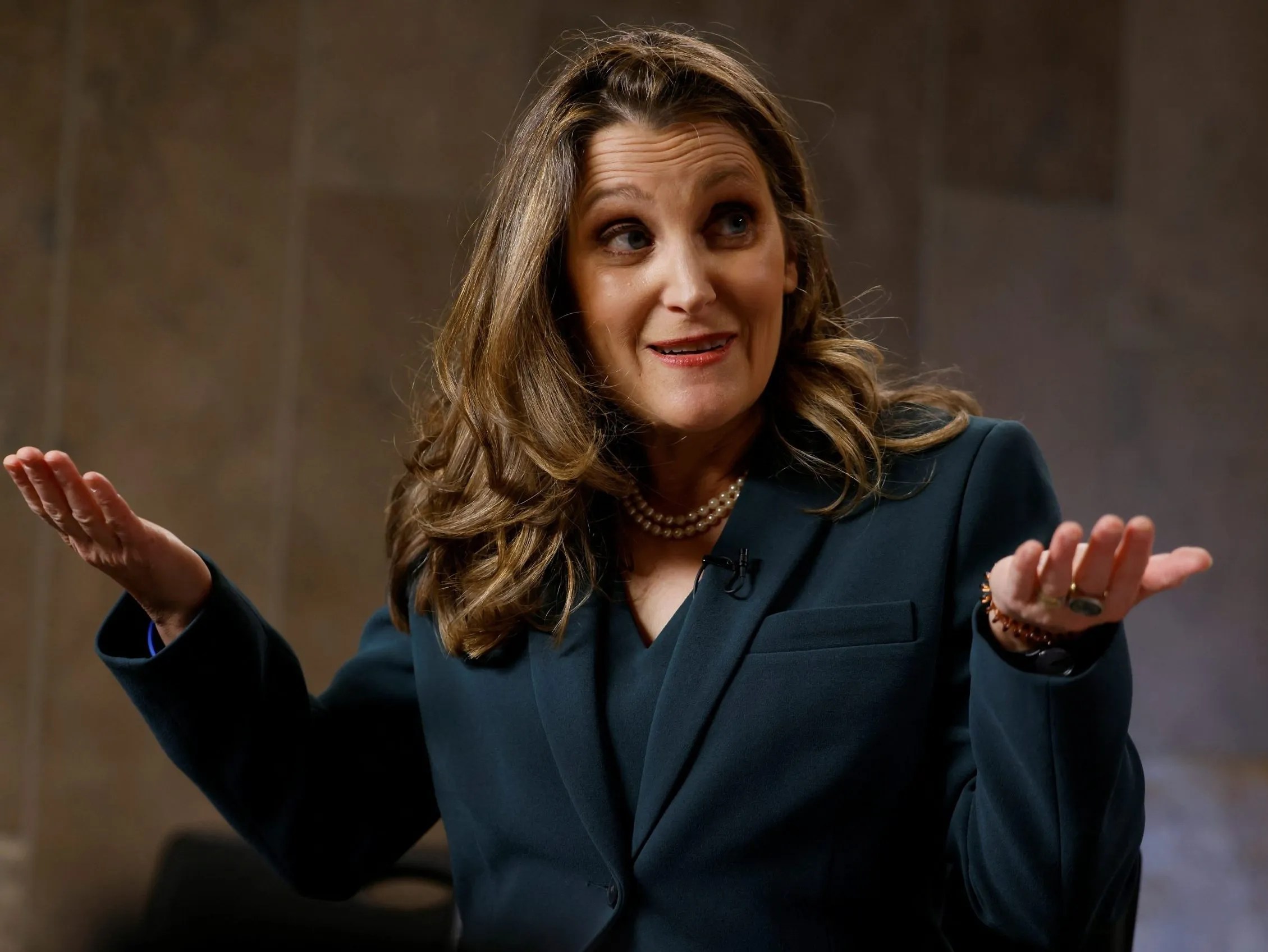Chrystia Freeland is a prominent figure in Canadian politics, known for her influential role as Deputy Prime Minister and Minister of Finance. With her extensive experience and involvement in key economic policies, many are curious about her annual salary and how it compares to her peers in the government. This article aims to shed light on Chrystia Freeland's annual salary, the factors that contribute to it, and what this means for public perception of political salaries in Canada.
As a highly regarded politician, Chrystia Freeland's position carries significant responsibility, which is often reflected in the compensation she receives. The role of a Deputy Prime Minister involves not only political leadership but also economic management, making it essential to understand the financial aspects of such a position. In this article, we will delve into the specifics of Chrystia Freeland's annual salary, as well as her contributions to the Canadian government and economy.
In addition to her salary, we will also explore her career trajectory and how her financial compensation aligns with her responsibilities and achievements. By examining the broader context of political salaries, we hope to provide a comprehensive overview of what Chrystia Freeland's annual salary represents within the realm of Canadian governance.
Who is Chrystia Freeland?
Chrystia Freeland has made a significant impact on Canadian politics and international relations. Born in 1968 in Peace River, Alberta, she has built a notable career as a journalist, author, and politician. Freeland earned her degree from Harvard University and later became a member of the Canadian Parliament, representing the Toronto Centre riding. Her expertise in economics and trade led her to serve in various crucial roles within the government, including Minister of Foreign Affairs and Minister of International Trade.
What are the key milestones in her career?
- Graduated from Harvard University.
- Worked as a journalist for major publications like the Financial Times and The Globe and Mail.
- Served as the Minister of Foreign Affairs from 2017 to 2019.
- Appointed Minister of Finance in 2020.
- Assumed the role of Deputy Prime Minister in 2019.
What are Chrystia Freeland's personal details?
| Detail | Information |
|---|---|
| Name | Chrystia Freeland |
| Date of Birth | August 2, 1968 |
| Birthplace | Peace River, Alberta, Canada |
| Education | Harvard University |
| Political Party | Liberal Party of Canada |
| Current Position | Deputy Prime Minister & Minister of Finance |
What is Chrystia Freeland's annual salary?
The annual salary of Chrystia Freeland, as of the latest updates, is an essential aspect to consider when analyzing her role in the government. As Deputy Prime Minister and Minister of Finance, Freeland's salary is determined by the government’s salary scale for elected officials. According to recent reports, her annual salary is approximately CAD 270,000. This figure includes her base salary as a Member of Parliament along with additional compensation for her ministerial roles.
How does her salary compare to other government officials?
When evaluating Chrystia Freeland's annual salary, it is important to place it in the context of other government officials. For instance:
- The Prime Minister of Canada earns an annual salary of approximately CAD 357,000.
- Other Cabinet Ministers typically earn around CAD 250,000 to CAD 300,000 annually.
- Members of Parliament earn a base salary of approximately CAD 185,000.
Freeland's salary, being at the higher end of the scale for ministers, reflects the critical responsibilities she holds in managing Canada's economy and finances.
What factors influence Chrystia Freeland's salary?
Several factors influence Chrystia Freeland's annual salary, including:
- The complexity and demands of her role as Minister of Finance.
- Her experience and expertise in economic matters.
- The economic climate and the government's fiscal policies.
- Comparative salaries of other similar positions within the government.
What does Chrystia Freeland's salary mean for public perception?
The annual salary of Chrystia Freeland raises questions about public perception of governmental salaries. Many Canadians may view her salary as justified given the importance of her role during challenging economic times. However, there are also discussions around the perception of public salaries, especially in contrast to the average Canadian income.
How does the public view political salaries in Canada?
Public opinion on political salaries can vary widely. Some common sentiments include:
- Concern over high salaries when compared to the average Canadian income.
- Support for competitive salaries to attract qualified individuals to public service.
- Calls for transparency regarding government expenditures.
What are the implications of Freeland's salary on future political leaders?
Chrystia Freeland's annual salary may have implications for future political leaders and candidates. It underscores the importance of compensation in attracting skilled individuals to government roles. Additionally, as discussions around economic inequality continue, her salary may serve as a focal point for debates on government compensation and fiscal responsibility.
Conclusion: The Significance of Chrystia Freeland's Annual Salary
In conclusion, Chrystia Freeland's annual salary is a reflection of her significant role within the Canadian government and the responsibilities that accompany her position. As Deputy Prime Minister and Minister of Finance, her salary aligns with the expectations placed on her to lead the nation through complex economic challenges. While public perception of political salaries continues to evolve, Freeland's compensation serves as an essential aspect of understanding the dynamics of government roles in Canada.
Unraveling The Life And Legacy Of Emily Peguero
Unveiling The Life Of Carolina Samani: A Rising Star In The Spotlight
Exploring The Life And Legacy Of Bear Grylls: Did Bear Grylls Die?


